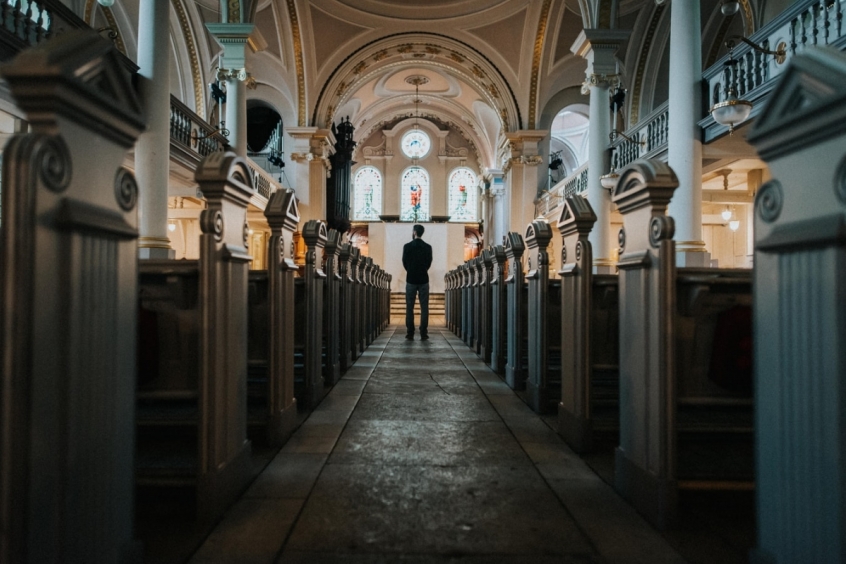
It is hard to measure these things scientifically, of course, but it is arguable that those of us who are either young or middle-aged in Western society lack more resilience than those who are older.
We haven't had to face a major war, of course. We have had enormous benefits from medical advances and technological breakthroughs. We take it for granted we can access the internet, fly on holiday abroad, watch colour TV and have a ready supply of food in our shops.
No wonder that when things go even a little bit awry our default mode is all too easily disbelief and outrage. Yes, it is all very sad if people going on holiday to France and other countries have had their holidays curtailed due to new quarantine restrictions. But we are (still) in the middle of a global pandemic and the fact that quarantine might need to be introduced was fairly well-trailed.
Yes, it is all very sad that some people have had A-level results which were worse than they expected. And it would seem indisputable that some of the students affected have indeed been poorly treated by the system. I'm sorry to hear that, genuinely. But the whole education system is in completely uncharted territory and it is not surprising everyone within it is flailing around somewhat.
Stuff happens. Life goes wrong. Sometimes things simply are unfair and there is nothing that can be done. Except that all too often we are so unused to it we have no coping mechanism or resilience built in to handle it.
And if that's true for Western society in general, it seems it is likely to be true for much of the Christian community in the West also.
Some anecdotal evidence at least would suggest that in quite a few churches it is the older, Second World War generation who are returning to services in buildings quickest. If Hitler's bombs couldn't see them off, then they're certainly not going to let Covid-19 keep them down.
The same anecdotal reporting would suggest that it is younger people and families who are the most risk-averse, worrying about what may happen if they mix with too many others in a public space.
I will freely admit I am speculating here – which is of course partly the purpose of a comment piece – but I do wonder what might happen if persecution in the UK really hots up. Some of course, will stand up and be counted. But will the rest quietly melt away, muttering diffidently, 'Gosh it all seems a bit difficult at the moment...'?
How can we better prepare people for a future Western society which is less Christian and more hostile to faith (though we pray and labour, of course, for revival)? Perhaps we need to be clearer that:
1. We live in a messed up, sinful world. This life is never going to be perfect. We cannot have all we want. We cannot all be celebrities. We cannot all achieve anything we aspire to if we try hard enough. People treat others badly. This is a sinful world and this is how it is. Holidays will be cancelled. Exam results may be disappointing. Education (and health) systems fail. Some government ministers are more competent, some rather less – regardless of party.
2. Expect pain. 'In this world,' Jesus says, 'you will have trouble,' (John 16v33). When we follow Christ, the 'crosses and losses' of ordinary life are not somehow magically waved away. Pain is normal. And for Christians, there is double trouble – because in addition to the ordinary knocks we all face, there is the additional layer of suffering because of our faith. 'All who want to live a godly life in Christ Jesus will be persecuted,' as Paul puts it in 2 Timothy 3v12. So Peter says, 'Dear friends, do not be surprised at the painful trial you are suffering,' (1 Peter 4v12).
3. Remember the age to come. This life is not all there is. Here we are travellers, on our way through, citizens of another kingdom. To be fixated on this life is like trying to make our holiday campsite our permanent home. What's the answer? James tells us: 'Blessed is the one who perseveres under trial because, having stood the test, that person will receive the crown of life that the Lord has promised.' Perseverance is the key.
When – when eventually – our churches somehow return to normal, with no masks, no restrictions, no social-distancing, who, I wonder will still be there? Who will have endured? And who will quietly have melted away?
David Baker is a Church of England minister, Contributing Editor at Christian Today, and Senior Editor of Evangelicals Now www.e-n.org.uk













